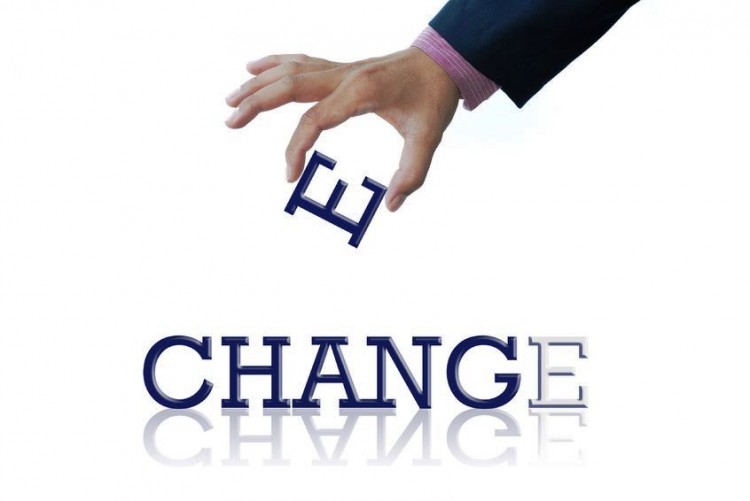We are seeing change in all aspects of our daily lives at a phenomenal pace. I am fascinated by the impact this has on the workplace and even more so on organisational response. Whether cultural, economic or technological each shift eventually has some sort of effect on and H.R. policies and practises and leadership input. The need to adjust, cope with or harness those developments seems to become stronger with each passing year. This week’s Carnival of H.R. looks at some of the impact of some of these trends.
In the 2014 Report on Human Capital Trends the international consulting organisation Deloitte, identify a number of key areas for attention. Most significant is the measurement of H.R readiness for some of the major shifts.
Here is the input of our international commentators:
Amit Bhagria, on Young H.R. Manager writes from India about the arrival of Gen Z in the workplace and Future challenges in Human Resource management .
With a focus on “Business Bullshit, Corporate Crap and other stuff from the World of Work” in Flip Chart Fairy Tales, Steve Toft in his post Work in 2030: even more precarious than it is now , examines projections for our future workplace, where the organisational values are shaped by Gen Y. Flexibility, transparency and employee engagement are widely adopted by business, but he maintains their application is effectively limited to the highly skilled. But what does this mean for the rest of the workforce?
Ian Welsh, based in Toronto, Canada, focuses on providing creative solutions to meet H.R. needs asks How Must HR Adapt to Changing Times? He considers specific ways and areas the H.R. function can try to reposition itself “to be ready and adaptable to business needs as they change”
Chris Fields in eSkills Blog examines the downside of our current corporate culture with an emphasis on “presenteeism” when sick employees continue to come to work with a significant impact on productivity and therefore hidden costs to the organisation. Sick but Still at Work – What’s the Real Cost of “Presenteeism”?
Australian recruitment leader, Greg Savage, founder of leading recruitment companies Firebrand Talent Search, People2People and Recruitment Solutions exhorts recruiters in his blog the Savage Truth to get up to date in a world where recruitment practises have been overturned by technology. In the post Dead recruiter walking, he argues how consultants who fail to adapt, will go under.
Employee Conditions & Benefits
It is estimated that by 2020, 60 million Americans will be working as freelance contractors. It is a growth sector in most geographies. Annabel Kaye, UK-based employment law specialist and CEO of Irenicon, flags up the impact of this shift from traditional corporate contracts on H.R. functions in her post Is freelancing the way to bypass HR?. Many companies she maintains are not equipped to deal with and manage the growing numbers who effectively work for themselves not the organisation.
The impact of the changes to the nuclear family are filtering into our organisations. I explore how these trends are creating significant challenges for organisations in Why parenting is an H.R. issue
Communication
Jesse Lyn Stoner Founder of the Seapoint Center, looks at how technology has opened up communication to encompass the globe in fraction of a minute. Online meetings and communication are becoming the norm in today’s fast paced hi-tech world. In her post Tips for Cross Cultural Communication she gives useful insight to help us all navigate cross cultural differences especially in the growing virtual workplace.
Donna Svei, Avid Careerist, Resume and LinkedIn profile writer tells us how hiring and HR managers can amplify the generic term “communications skills” and drill down to ask for specific competencies which will help job seekers focus more precisely. 10 Better Ways to Communicate Your Communications Skills
Work-Life & Employee engagement
With references to the perhaps not so new term ” the overwhelmed employee,” Mark Morford, columnist and culture critic, takes a look at the new and much discussed concept of work-life balance as technology makes us all contactable 24/7. With Millennials committed to not working as hard as their parents, he asks us Is work-life balance a lie? and should we really be talking about work-life synergy?
Employee engagement is being seen as key to the success of any business and Katie Richard and Sarah Clarke at ChangeBoard Blog consider the implications of a disengaged workforce in How to make your employees happy on International Happiness Day
Dr. Anne Perschel of Germane Consulting and Co-Founder 3Plus International tells us that Employee Engagement Starts with Leadership Engagement. She gives six questions to test leadership engagement.
Leadership
As we hope to emerge from the grips of a savage global recession many writers are reflecting on the type of leadership and organisational values to take our businesses and cultures forward. Is is business as usual or does it require a different approach?
Lolly Daskal, Founder of Lead from Within, a global leadership and consulting firm advocates for Tough minded leadership with tender hearted skills to achieve business success.
Susan Mazza, Random Acts of Leadership, challenges the “unspoken belief for many that, if you get to a certain level or position, you will have to change who you are.” A leadership coach and organizational change consultant, she suggests that the best leaders are the ones who Be their own brand of leader
What other trends would you add?






Pingback: Quarter 1 Carnivals of HR! – Bringing you the best of the HR Blogging Community.
I have an observation. It is that HR (and training) people can move forward by serving the needs of their organization. I run into many HR people who act in a fortress-like way acting only in the interests of their department goals, In part this is because the rest of their organization views them as gatekeepers and therefore as service providers, not strategic partners.
Thanks Alan – I had this very conversation today about HR being gatekeepers and not real business partners. It was also suggested that because it is a heavily feminised function that this protectiveness had increased over the last decade. Would you agree with that?